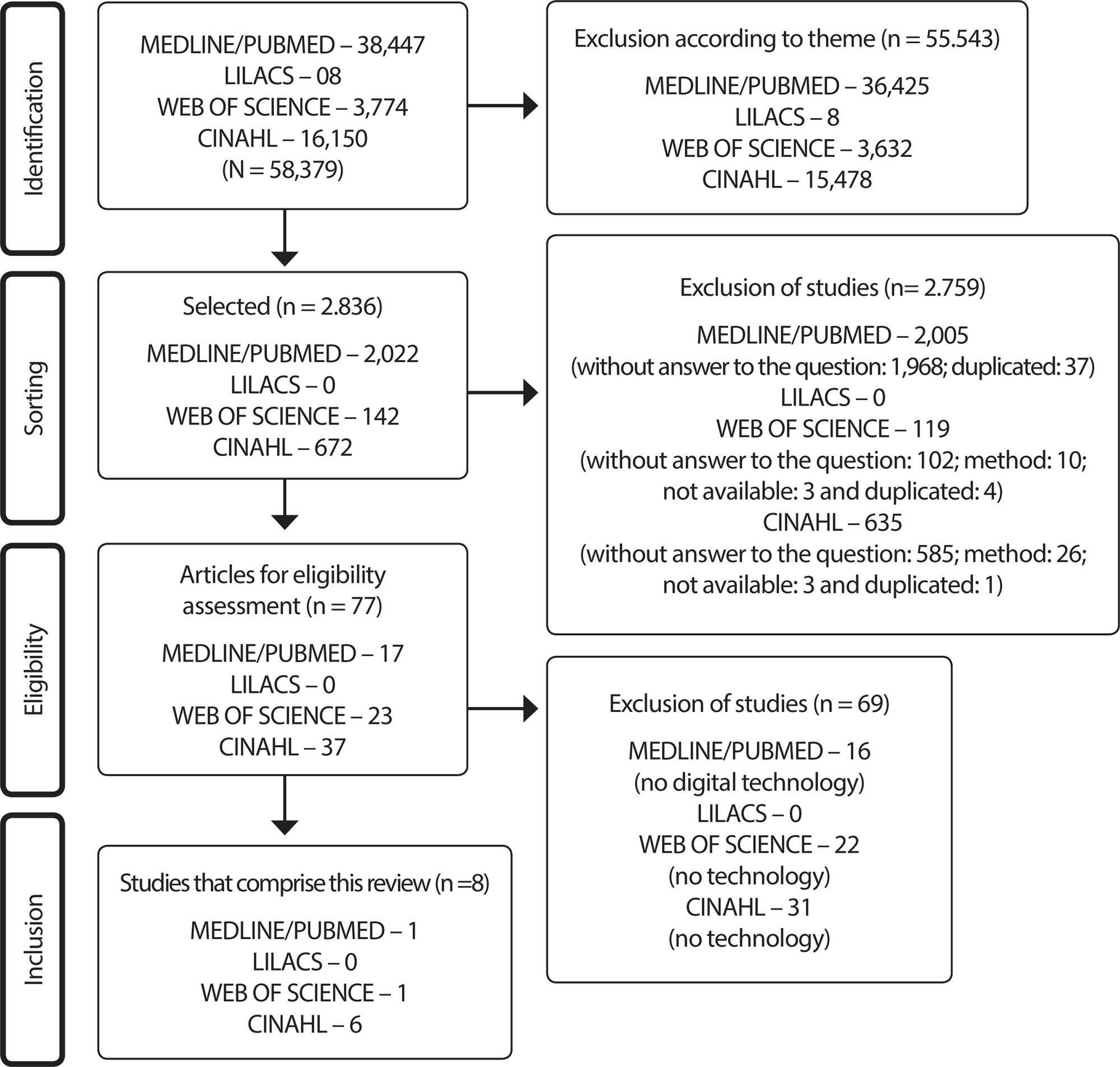-
REVISÃO
Digital technologies for promotion of healthy eating habits in teenagers
Revista Brasileira de Enfermagem. 2019;72(2):513-520
04-18-2019
Resumo
REVISÃODigital technologies for promotion of healthy eating habits in teenagers
Revista Brasileira de Enfermagem. 2019;72(2):513-520
04-18-2019DOI 10.1590/0034-7167-2018-0352
Visualizações0Ver maisABSTRACT
Objective:
Identify and analyze the scientific literature on digital technologies for promotion of healthy eating habits in teenagers.
Method:
Integrative review of articles published in English and Spanish, available in full on four databases. The descriptors used were (Adolescent health) OR (Teen health) AND (Healthy diet) OR (Healthy eating) AND (Educational technology) OR (Instructional technology), respectively, from which eight articles were selected.
Results:
Among the studies included, three were digital games; two web-based nutrition interventions; two using online programs to prevent obesity; and one nutritional advice using multimedia. They showed experiences of digital technology and its effects on knowledge improvement and/or behavior of participants when developing healthy eating habits.
Conclusion:
Digital technologies are innovative tools present in the lives of teenagers, with the possibility of being used for education and promotion of healthy eating, contributing to the empowerment of the subject for his/her self-care.

-
RESEARCH
Knowledge of healthcare professionals about breastfeeding and supplementary feeding
Revista Brasileira de Enfermagem. 2018;71(6):2953-2960
01-01-2018
Resumo
RESEARCHKnowledge of healthcare professionals about breastfeeding and supplementary feeding
Revista Brasileira de Enfermagem. 2018;71(6):2953-2960
01-01-2018DOI 10.1590/0034-7167-2017-0494
Visualizações0Ver maisABSTRACT
Objective:
To analyze the knowledge of breastfeeding (BF) and supplementary feeding (SF) of professionals in the Primary Health Care.
Method:
Cross-sectional study, with 168 professionals, conducted between June and September 2016. The Kruskal Wallis test was used to compare means of percentage of knowledge about BF and SF, by professional category and contingency testing, for association between variables.
Results:
From the total of professionals, 39.29% of them demonstrated good knowledge about BF and 2.38% about SF; 74.4% of respondents reported not knowing the program Brazilian Breastfeeding and Feeding Strategy (EAAB – Estratégia Amamenta e Alimenta Brasil). There was a positive association between professionals’ level of knowledge about BF and education (p=0.04), occupation (p=0.05) and healthcare in BF (p=0.04). Regarding the level of knowledge about SF, there was association between education (p<0.01) and healthcare in SF (p=0.04).
Conclusion:
The professionals have greater knowledge about breastfeeding when compared to supplementary feeding.



